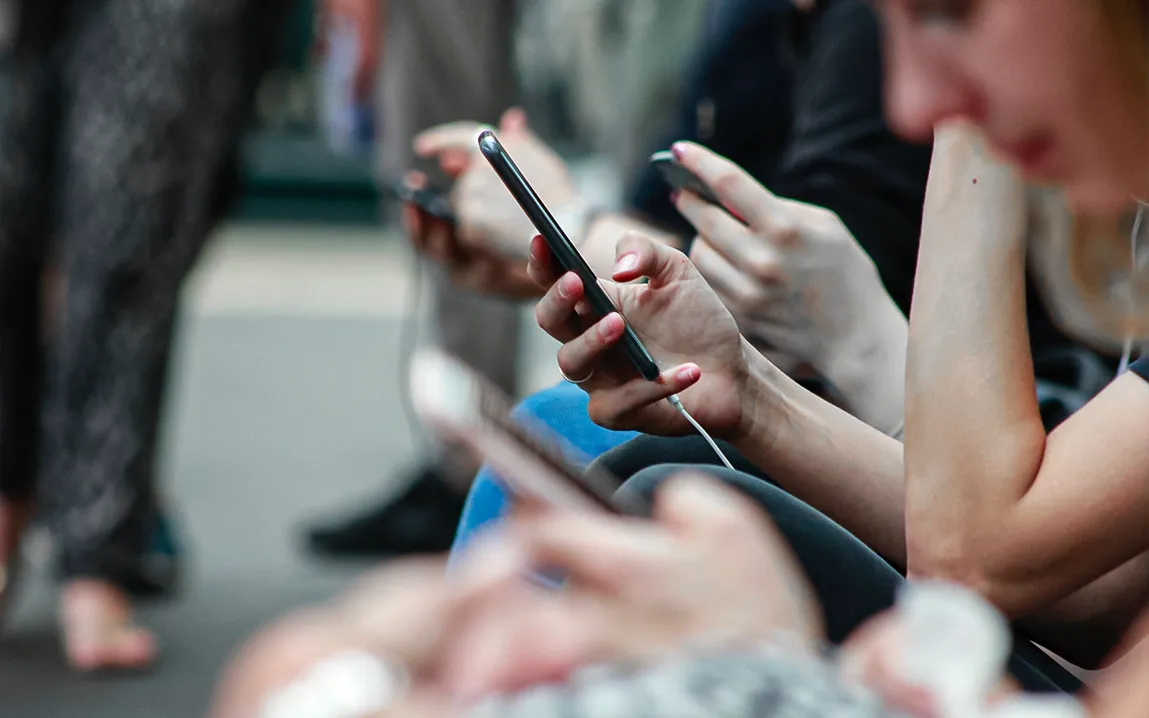A new study from Japan suggests that individuals who are easily distracted by their smartphones may experience more intense physiological reactions and have a weaker connection with their bodily sensations.
Researchers at Hokkaido University explored the impact of smartphone-related attention on both mental focus and physical response. The results, published in Communications Psychology, reveal that individuals who tend to fixate on smartphone stimuli—even when they’re irrelevant—also exhibit lower interoceptive awareness (the ability to sense internal body signals like heart rate) and increased physiological reactivity.
“Although digital devices like smartphones have become deeply embedded in our daily lives, we still know surprisingly little about how they shape our bodily awareness and perception,” said Yusuke Haruki, the study’s lead author. “We became especially interested in how attention toward smartphone-related cues in everyday situations might influence our awareness of bodily sensations.”
The Experiment
The researchers recruited 58 healthy young adults for a simple attention-based experiment. Participants were asked to spot target letters on a computer screen, with the difficulty varying depending on how many letters appeared at once.
Meanwhile, two types of background images were shown:
- Smartphone-related images, such as an incoming call screen
- Scrambled control images, which were meaningless visual noise
Using participants’ reaction times, the researchers grouped them into two clusters:
- One group was consistently distracted by smartphone cues, regardless of task difficulty
- The second group was only distracted when the task was easier
Key Findings
Researchers compared both groups’ bodily self-awareness and physiological reactions. They found that the consistently distracted group not only performed worse on the attention task but also:
- Showed higher heart rate spikes when exposed to smartphone images
- Scored lower on interoceptive awareness, indicating they were less aware of bodily sensations like heartbeat or breathing
“Participants who were more distracted by smartphone cues not only performed worse on the attention task but also showed accelerated heart rates,” Haruki said. “They were also less attuned to internal bodily signals—a pattern mirroring behavioral addictions like gambling or substance use.”
These results suggest that for some individuals, smartphone-related stimuli can override both cognitive focus and bodily awareness, drawing mental attention while also triggering stronger physical reactions, even if the phone isn’t actually ringing or being used.
Behavioral Addiction Parallels
The research adds to growing evidence that excessive smartphone use shares similarities with behavioral addictions, like gambling or drug dependency. In such addictions, external cues (like a slot machine or a notification) hijack attention and may weaken an individual’s connection to internal physical signals—a disconnect that can make it harder to self-regulate behavior.
“This project began as an interdisciplinary exploration between philosophy and psychology,” Haruki explained. “It aims to understand the relationship between technology and the human body.”
What’s Next?
Haruki and his team hope their findings can help inform strategies to encourage healthier digital habits, especially for younger users.
“In our next studies, we plan to examine brain activity while people are distracted by smartphones and how this pattern develops over time—especially in adolescence or young adulthood,” Haruki said.
With smartphone use now a near-universal part of modern life, understanding how it interacts with both mind and body is crucial, not only for improving focus but also for long-term mental and physical health.



